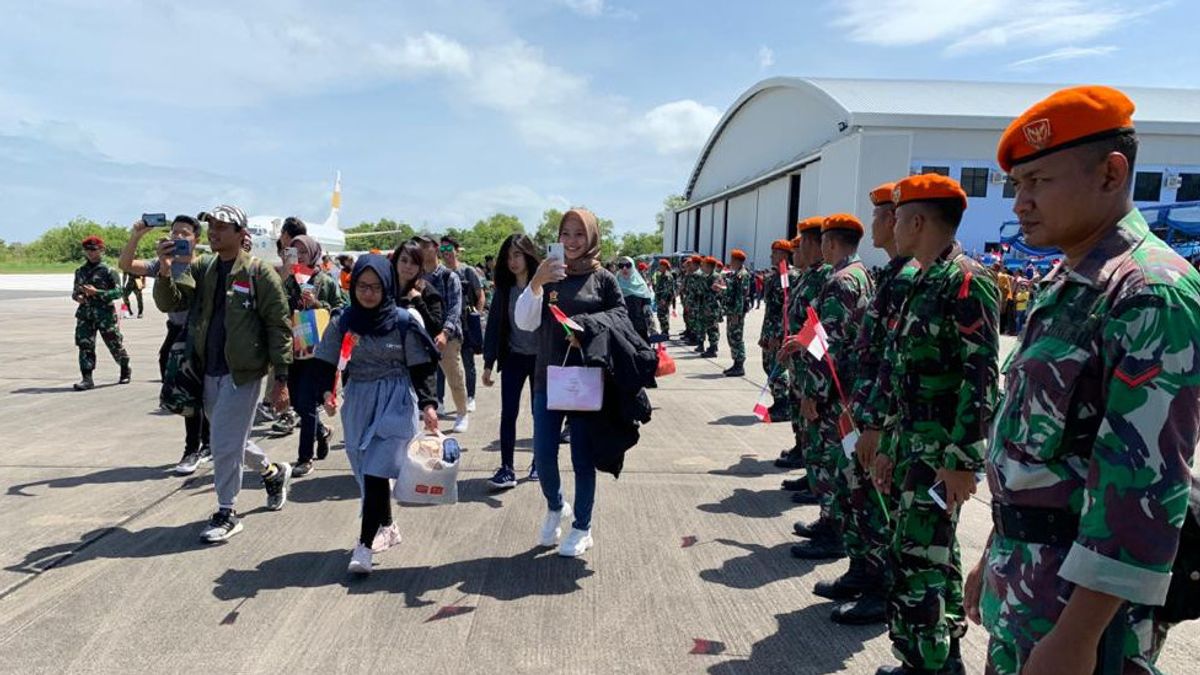JAKARTA - The quarantine period for 238 Indonesian citizens (WNI) related to the spread of the corona virus has been completed. As a result, not one of them has been proven to have contracted the dangerous virus.
Hundreds of people were sent home, on Saturday, February 15. However, with this repatriation, new problems will emerge, namely the response from the surrounding community.
It is possible that hundreds of Indonesian citizens will receive a negative response. This is because the Corona virus is still a frightening specter for the Indonesian people. In fact, they can even become victims of abuse due to what they have experienced.
The sociologist, Bayu A. Yulianto, confirmed these possibilities. According to him, this could happen if there were no steps from the government to convince the public if hundreds of Indonesian citizens had not contracted the corona virus or COVID-19 (corona virus dissease).
"The possibility will still exist, especially when not all residents are well informed (about the corona virus). Hence, the role of the government is important, especially after quarantine, what they will do or prepare," he told VOI when contacted, Sunday, February 16. .
So that hundreds of Indonesian citizens do not get a negative response, he said, the government, especially at the regional level, must continue to convey all forms of information related to the corona virus to the public.
With this information, people's worries will disappear over time. Moreover, Indonesian people are also known to have a very high sense of empathy.
"Our society has relatively high human empathy for these kinds of difficulties. Especially if the government can convince the public that the state's readiness to face this threat has been well planned," said Bayu.
On the other hand, problems will also arise for these Indonesian citizens. They may experience psychological shock because they are afraid that the local community will perceive them as disease spreaders. For this reason, it is important for the government or related agencies to provide periodic explanations and supervision to them.
The role of the family, said Bayu, is very important to continue to accompany the former observation participants. Because, to get through this phase is not an easy matter. In fact, if there is no proper accompaniment, then, they will suffer from prolonged depression.
"They also have to be convinced that they are really clean and will not transmit (the corona virus) to the surrounding people. If there are still those who are not sure, the state needs to provide further assistance to them. So that they do not just let go," said Bayu.
To ensure that there are steps or efforts from the government to prevent this from happening, VOI also tried to confirm with the DKI Jakarta Health Office. Because, based on existing data, around 16 observation participants were residents of Jakarta.
Public Relations of the DKI Jakarta Health Service, dr. Irma said that his party would provide assistance to former observation participants and the community. In addition, appeals about no need for fear of the corona virus to all levels of society have also been made.

"The DKI Jakarta Provincial Government will provide assistance to observation participants and the wider community who need health services and information services," said Irma.
Head of the Disease Prevention and Control (P2P) Division of the DKI Jakarta Provincial Health Office, Dwi Oktavia Handayani, said that socialization efforts to the community were carried out by forming 50 COVID-19 extension teams. Based on data as of February 12, tens of thousands of participants have participated in the outreach in almost all areas of the capital city.
"Socialization and education on COVID-19 awareness has been carried out to 11,063 participants in 303 locations, consisting of 165 settlements (apartments, flat, housing, hotels), 69 health facilities, 33 educational facilities, 24 entertainment places, and 12 offices in DKI Jakarta. "said Dwi.
Enthusiasm and joy could be seen on the faces of the observers. The Head of BNPB & Menko PMK seemed to greet and congratulate the observation participants. # PBUrusanBersama # Covid19 #SiapUntukSelamat #CoronaVirus # NatunaUntukIndonesia @ KemenkesRI @kemenkopmk @WHOIndonesia pic.twitter.com/rgCZZbELwK
- BNPB Indonesia (@BNPB_Indonesia) February 15, 2020
On the previous occasion, Minister of Health Terawan Agus Putranto also said that in an effort to eliminate the sense of anxiousness of the community over the return of 238 observation participants, his party had provided certificates to prove their health status.
"All Indonesian citizens have also been equipped with the results of health certification from the results of the inspection by the government. They also received monitoring during the observation period," explained Terawan.
The English, Chinese, Japanese, Arabic, and French versions are automatically generated by the AI. So there may still be inaccuracies in translating, please always see Indonesian as our main language. (system supported by DigitalSiber.id)









